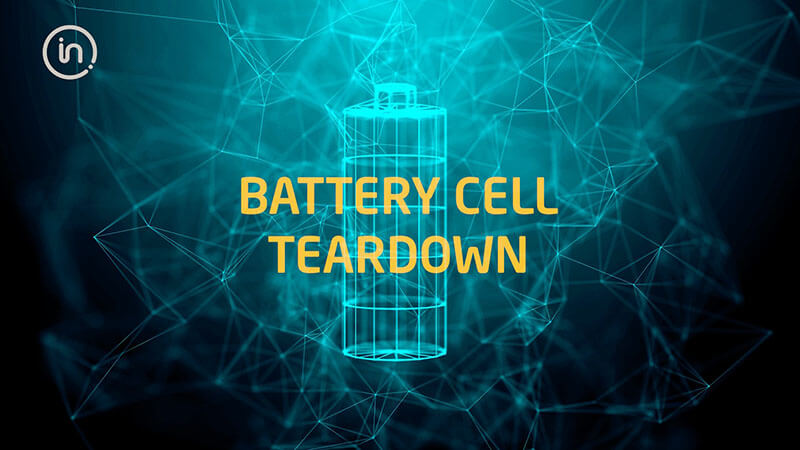Battery Cell Teardown: Understanding Energy Storage
What is Battery Cell Teardown?
Battery Cell Teardown, also referred as Battery Cell Autopsy or Disassembly, is a meticulous process which involves carefully disassembling a battery cell and analyzing its components – from the anode and cathode to the separator and electrolyte – to understand its design, material composition, manufacturing quality, and degradation over testing or service.
Importance in Modern Technology
The significance of battery cell teardown cannot be overstated in today's rapidly evolving technological landscape. Battery cell teardowns are conducted to:
- Identify cell construction, analyze internal components and materials
- Benchmark against competitor cells
- Identify manufacturing defects and quality issues
- Investigate failure modes or performance issues
- Inform future design improvements and innovations

Watch our demo video for a glimpse into our routine cell teardown quality inspection
Industries Benefiting from Teardown Analysis
The applications of battery cell teardown span across a wide range of industries:
- Electric Vehicle (EV)
- Consumer Electronics
- Renewable Energy Storage Systems
- Aerospace and Defense
- Medical Devices
These industries rely on teardown analysis to drive innovation, ensure product safety, and maintain competitive edge in the market.
Our Expertise: Your Battery Teardown Partner
Our state-of-the-art battery failure analysis laboratory is equipped to handle comprehensive battery cell teardown needs. We offer:
Qualifications:
- Highly qualified engineers and scientists with extensive experience in battery technology, chemistry, and materials science
Capabilities:
- Battery cycling, function testing to separate good cells from bad cells
- Gloveboxes, fume hoods
- Microscope and photo documentation of teardown process
- Advanced battery cell analysis techniques:
- Scanning Electron Microscopes (SEM)
- Energy-dispersive X-ray spectroscopy (EDS)
- Fourier Transform Infrared Spectroscopy (FTIR)
- Gas Chromatography-Mass Spectrometry (GC-MS) instruments
- X-ray Diffraction (XRD) systems
- Electrochemical Impedance Spectroscopy (EIS)
- X-ray Digital Radiography/ Computed Tomography (X-ray/CT)
- Nuclear Magnetic Resonance (NMR)
- Raman Spectroscopy
- Inductively Coupled Plasma (ICP)
- Comprehensive safety protocols for handling potentially hazardous materials
Capacity:
- Dedicated workstations for simultaneous teardown projects
- High-volume processing capability to meet industry demands
- Rapid turnaround times without compromising on quality or depth of analysis
Intertek is committed to providing accurate, insightful, and timely results that drive innovation and quality in the battery industry. Whether you're developing the next-generation EV batteries or optimizing energy storage solutions, our teardown services offer the critical insights needed to stay ahead in this dynamic field.
Knowledge Center
Top-10 FAQs about the UN 38.3 8th Edition
Techniques & Methods of Li-Ion Battery Failure Analysis: Webinar | White Paper
IEC 62133 and the Lithium-ion Battery Compliance Roadmap - webinar recording
UN 38.3 and the Transportation of Lithium Batteries: A Webinar Series
Battery Energy Storage Systems (BESS) for On- and Off-Electric Grid Applications - white paper
Energy Storage Systems: Product Listing & Certification to ANSI/CAN/UL 9540
Top-8 FAQs of Failure Analysis
Hoverboards, UL 2272 and You! - webinar recording
Consulting, Registration, and Recycling Services for Product Packaging and Batteries
